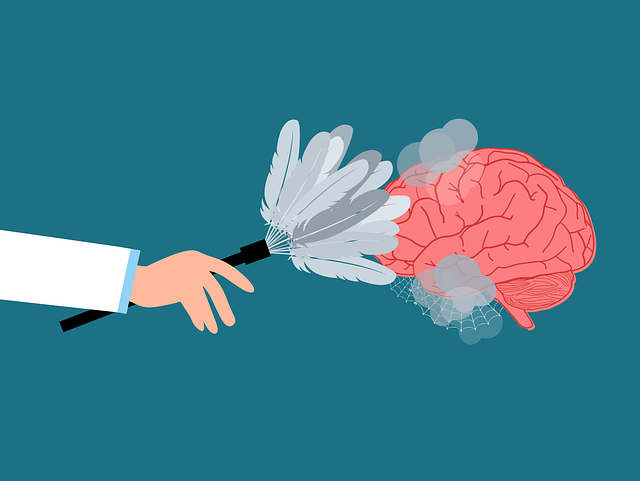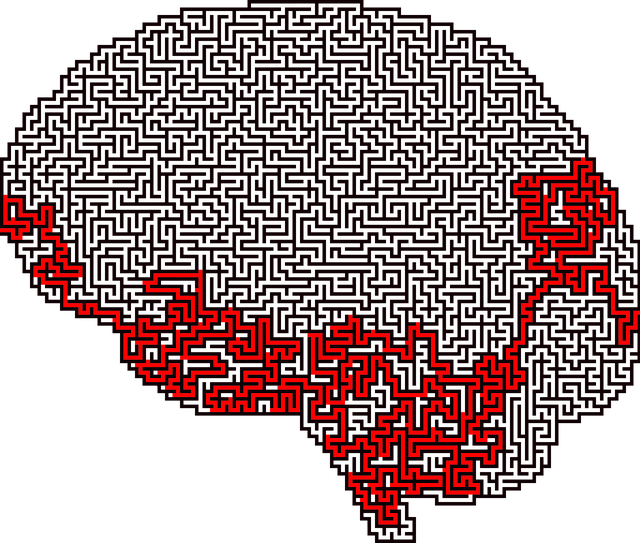Misdiagnosis in mental health is a significant issue, but Greenwood Village Acceptance and Commitment Therapy (ACT) offers a promising solution. By promoting present-moment awareness, acceptance, and mindfulness, ACT helps individuals manage symptoms effectively and promotes accurate diagnoses through holistic evaluations that go beyond surface symptoms. Integrating patient feedback and tailored support services, GVAAT enhances emotional well-being, fosters resilience, and ensures personalized treatment plans for diverse communities.
Mental illness diagnosis accuracy is a growing concern, with misdiagnosis rates significantly impacting patient outcomes. This article explores efforts to enhance diagnostic precision, focusing on innovative approaches like Greenwood Village Acceptance and Commitment Therapy (GVAAT). We delve into comprehensive evaluation methods, emphasizing the importance of patient feedback and cultural sensitivity for improved mental health care. By understanding the challenge and adopting advanced strategies, we can strive for more accurate and effective diagnoses.
- Understanding the Challenge: Misdiagnosis Rates and Their Impact
- Greenwood Village Acceptance and Commitment Therapy (GVAAT): A Novel Approach
- Enhancing Diagnosis Accuracy through Comprehensive Evaluation
- Integrating Patient Feedback and Cultural Sensitivity for Better Outcomes
Understanding the Challenge: Misdiagnosis Rates and Their Impact

Misdiagnosis rates in mental health are alarmingly high, with studies suggesting that up to 30% of initial diagnoses are incorrect. This challenge has profound implications, as inappropriate treatment or lack thereof can significantly impact patients’ lives. For instance, individuals suffering from anxiety disorders may receive a depression diagnosis and consequently be prescribed antidepressants, which are not always effective for their specific condition. Such missteps can lead to prolonged suffering, increased stress, and even burnout among patients—a concern shared by healthcare providers who strive to offer accurate, personalized care.
Greenwood Village Acceptance and Commitment Therapy (ACT) is one approach gaining recognition for its potential in addressing these issues. By focusing on present-moment awareness and acceptance, ACT empowers individuals to manage their symptoms effectively. Moreover, it equips healthcare professionals with valuable tools for stress management and burnout prevention strategies, enabling them to provide more accurate assessments and tailored trauma support services.
Greenwood Village Acceptance and Commitment Therapy (GVAAT): A Novel Approach

The Greenwood Village Acceptance and Commitment Therapy (GVAAT) is a novel approach that has shown significant potential in improving mental illness diagnosis accuracy and enhancing overall emotional well-being. This therapy focuses on helping individuals accept their experiences and commit to actions that align with their personal values, fostering coping skills development. By promoting mindfulness and flexible thinking, GVAAT aids in distinguishing between adaptive and maladaptive behaviors, leading to more precise diagnoses.
In today’s world where mental health awareness is increasingly recognized, GVAAT offers innovative techniques for addressing various psychological challenges. Through its emphasis on acceptance, commitment, and values clarification, this therapy empowers individuals to navigate life’s complexities with resilience. By integrating these principles into therapeutic practices, mental health professionals can facilitate more effective coping strategies, ultimately improving diagnosis accuracy and contributing to the overall promotion of emotional well-being.
Enhancing Diagnosis Accuracy through Comprehensive Evaluation

Improving mental illness diagnosis accuracy involves a shift towards comprehensive evaluations that go beyond surface-level symptoms. At Greenwood Village Acceptance and Commitment Therapy (ACTP), we believe in adopting a holistic approach to understanding an individual’s mental health. This includes exploring various aspects of their life, such as personal history, social dynamics, and coping mechanisms. By integrating Mental Health Awareness into our practices, we aim to uncover underlying causes that might be obscured by typical diagnostic criteria.
Through organized Stress Management Workshops and the Development of Mental Wellness Coaching Programs, ACTP facilitates a supportive environment where individuals can openly discuss their experiences. This collaborative process allows for more precise diagnoses as therapists gain deeper insights into clients’ lives. By combining evidence-based practices with personalized attention, we strive to enhance diagnosis accuracy, ensuring that each individual receives the most effective and tailored treatment plan for their mental wellness journey.
Integrating Patient Feedback and Cultural Sensitivity for Better Outcomes

Integrating patient feedback into mental health care has emerged as a powerful tool to enhance diagnosis accuracy and improve overall treatment outcomes. By actively listening to patients’ experiences, concerns, and preferences, healthcare providers can gain valuable insights that bridge the gap between clinical assessment and individual needs. This patient-centered approach is particularly relevant in diverse communities, where cultural sensitivity plays a crucial role. For instance, Greenwood Village Acceptance and Commitment Therapy (ACT) programs have recognized the importance of tailoring interventions to reflect the unique cultural backgrounds and beliefs of their clients.
By incorporating self-care routine development for better mental health as part of therapy, healthcare professionals can empower individuals to take charge of their well-being. Encouraging patients to share their feedback on depression prevention strategies and communication techniques allows therapists to adapt their methods accordingly. This collaborative process fosters a sense of trust and engagement, ensuring that treatment plans remain relevant and effective over time. Such personalized care has been shown to enhance patient satisfaction and adherence to recommended mental health practices.
Mental illness diagnosis accuracy is a multifaceted challenge that demands innovative solutions. As highlighted in this article, misdiagnosis rates underscore the need for improved assessment methods. The introduction of Greenwood Village Acceptance and Commitment Therapy (GVAAT) offers a promising novel approach, combining effective therapeutic techniques with comprehensive evaluation tools. By integrating patient feedback and cultural sensitivity, mental health professionals can enhance diagnosis accuracy, ultimately fostering better outcomes. These efforts collectively contribute to refining the landscape of mental health care.












